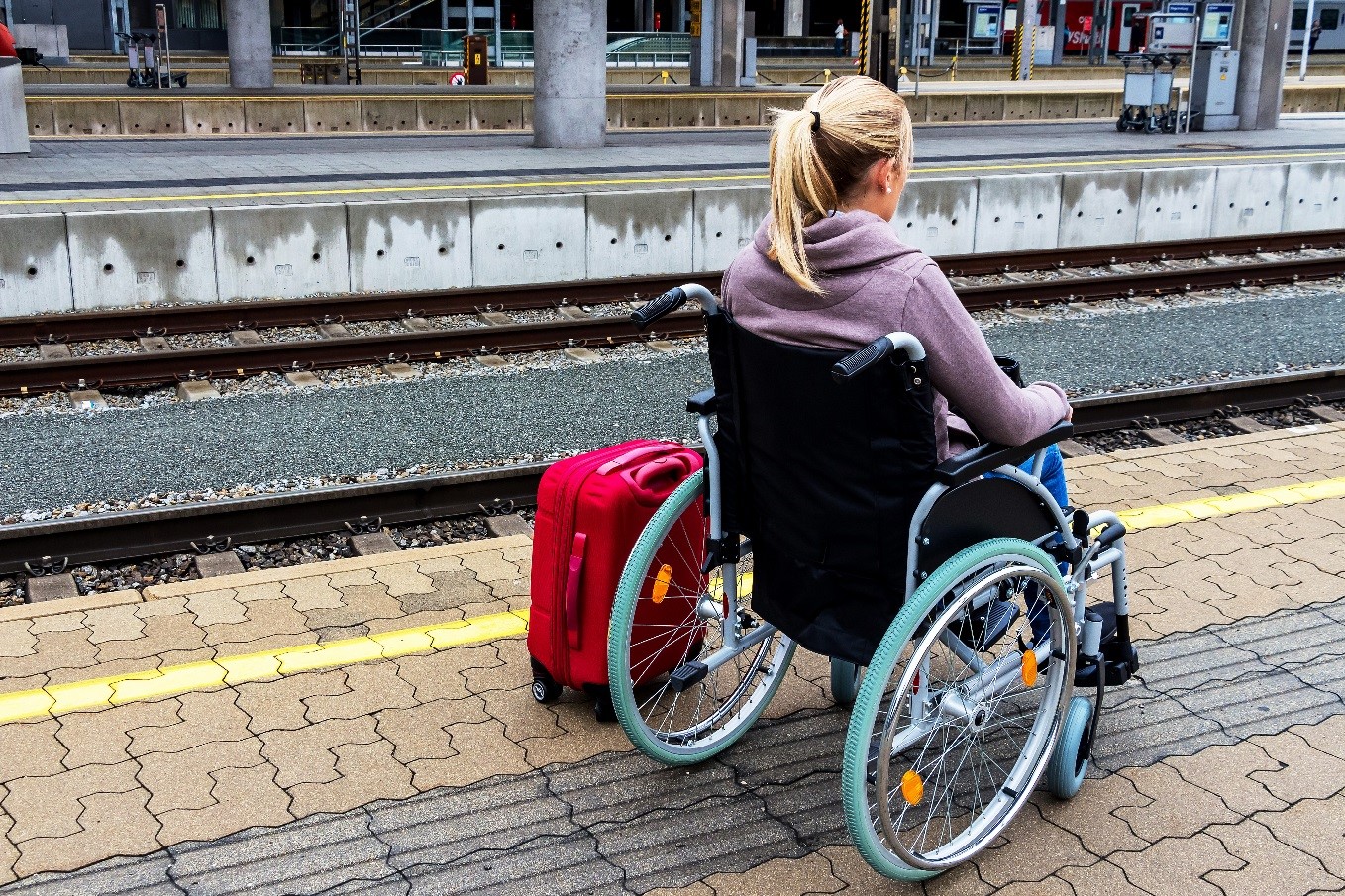In Plenary on 31 January, Assembly Members will debate the Petitions Committee report on ensuring disabled people can access public transport as and when they need it (PDF 797KB). The report follows the Committee’s consideration of a petition submitted by the Whizz-Kidz Cardiff Ambassador Club, a youth club for young disabled people from South Wales. The petition received 97 signatures.
The petition called on the Assembly to urge the Welsh Government to ensure that:
- Young disabled people have a right to accessible public transport when they require it, without the need to plan assistance at least 24 hours in advance; and
- Taxi and bus drivers and train staff are trained in disability awareness and provide appropriate support.
Issues around access
Whizz-Kidz presented several key issues (PDF 428KB) around access to train, bus and taxi services to the Committee during an informal evidence session on 31 January 2017. These included:
- The inability to travel at short notice;
- A lack of staff training across all transport modes which results in disabled people being made to feel like a ‘burden’; and
- A lack of support on trains and issues with the accessibility of trains and stations.
Whizz-Kidz highlighted that accessibility issues can impact young people’s ability to look for work or socialise as travelling can be ‘too much hassle’. These issues can also impact young disabled people’s confidence, leave them feeling isolated, and mean that they don’t feel equal to their peers who do not use wheelchairs.
Whizz-Kidz provided the Committee with video evidence, including Josh's Story which highlights many of the barriers facing young disabled people when travelling by train in South Wales. 
Key evidence from external witnesses
The Committee heard from a range of public transport providers, industry associations and local government representatives about the issues raised by Whizz-Kidz.
The train and bus operators that gave evidence to the Committee outlined the varying levels of disability awareness training provided to staff. For example, the Committee heard that there is currently no mandatory requirement for bus operators to require drivers to complete disability awareness training. However, First Cymru said that all bus companies will be required to provide disability awareness training from 1 March 2018, as part of the Driver Certificate of Professional Competence.
The accessibility of trains and stations was also examined by the Committee. The train operators stated that whilst new trains are accessible older trains aren’t, although where possible operators are in the process of upgrading rolling stock. The Welsh Government is currently in the process of procuring an operator to run the Wales and Borders Franchise from October 2018. The Committee was concerned that it is currently unclear whether the new Wales and Borders Franchisee would be able to update all trains to meet the needs of disabled passengers by January 2020, as required by Regulation 45 of the Railways (Interoperability) Regulations 2011.
Concerns were also raised around the availability of accessible taxis and private hire vehicles (PHVs), especially at certain times of day. The Licensed Private Hire Car Association responded that, as most drivers are self-employed, taxi operators and licensing authorities cannot demand that drivers with certain vehicle types are available at certain times of day. Additionally, the lack of financial support from the Welsh Government for drivers who wish to purchase wheelchair accessible cars, means that drivers would incur higher costs for no financial return.
The Committee’s Recommendations
The Petitions Committee made 12 recommendations in total, 11 of which were directed at the Welsh Government. These included that it should:
- Introduce disability awareness training for: customer facing train and station staff under the new Wales and Borders Franchise; bus drivers as part of the Voluntary Welsh Bus Quality Standard; and taxi and PHV drivers;
- Work with Network Rail and the UK Government, and invest its own funds, to improve access for disabled people at inaccessible stations;
- Ensure that the next Wales and Borders Franchise and Metro delivers improved accessibility across all aspects of train and Metro services;
- Work with all train operating companies delivering services in Wales to raise awareness amongst customers of the accessibility support available; and
- Continue to develop common national standards for taxis and PHVs, inclusive of a requirement for all drivers in Wales to complete disability awareness training and specific training related to the type of vehicle they drive.
The Welsh Government’s response
In its response to the Committee’s report (PDF 266KB), the Welsh Government accepted all of the recommendations. However, the response acknowledged, as did the Committee’s report, that disabled access to public transport is not devolved.
The response highlighted that by the end of this year the Welsh Government expects to publish ‘accessible transport objectives’. These will include the development of disability awareness training for railway staff and for bus, taxi and PHV drivers. The Welsh Government added that its Bus Services Support Grant would only be available if drivers took disability awareness training as part of the Voluntary Welsh Bus Quality Standard. Significantly, the Welsh Government declared that it is aiming for the next railway franchise to enable disabled people to be able to ‘turn up and go’.
It is worth noting that, in response to recommendations related to taxi and PHV licensing, the Welsh Government referred to delivery of ‘detailed proposals’ for reform of the licensing of taxi and PHV drivers by spring 2018. However, the response did not clarify how these proposals would address the accepted recommendations.
The Research Service acknowledges the parliamentary fellowship provided to Moya Macdonald by the Natural Environment Research Council, which enabled this blog to be completed.
Article by Moya Macdonald and Sean Evans, National Assembly for Wales Research Service






